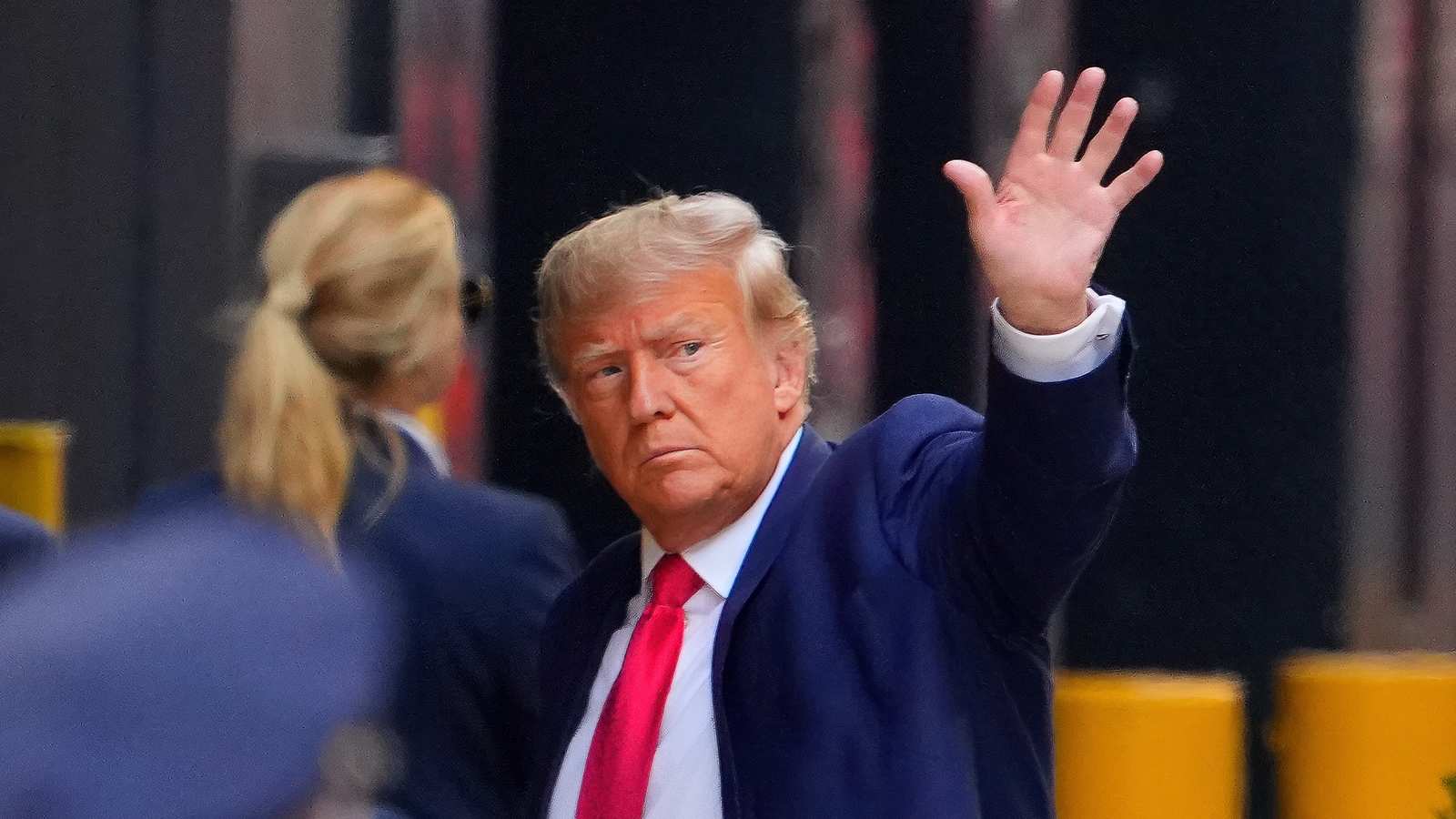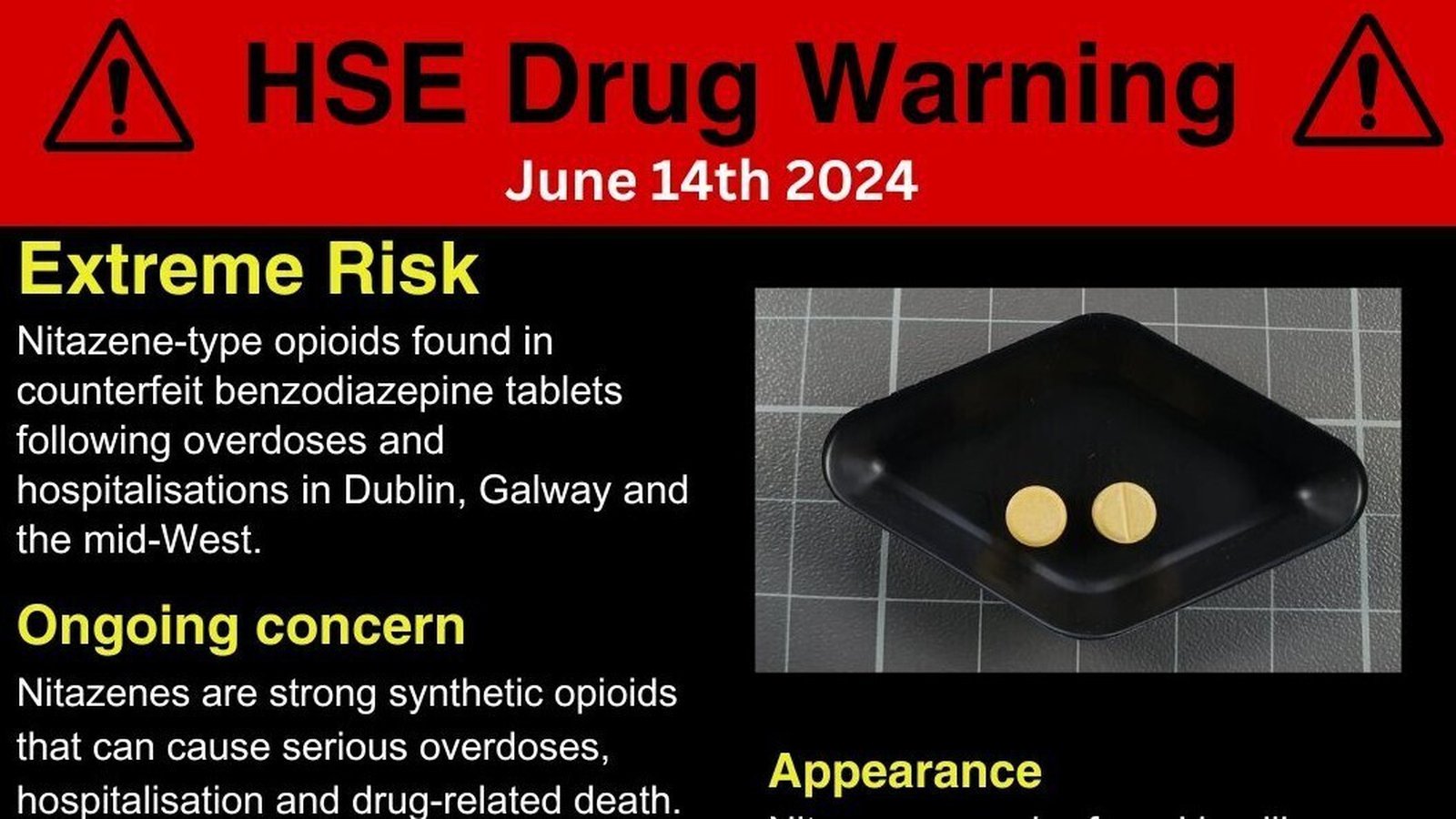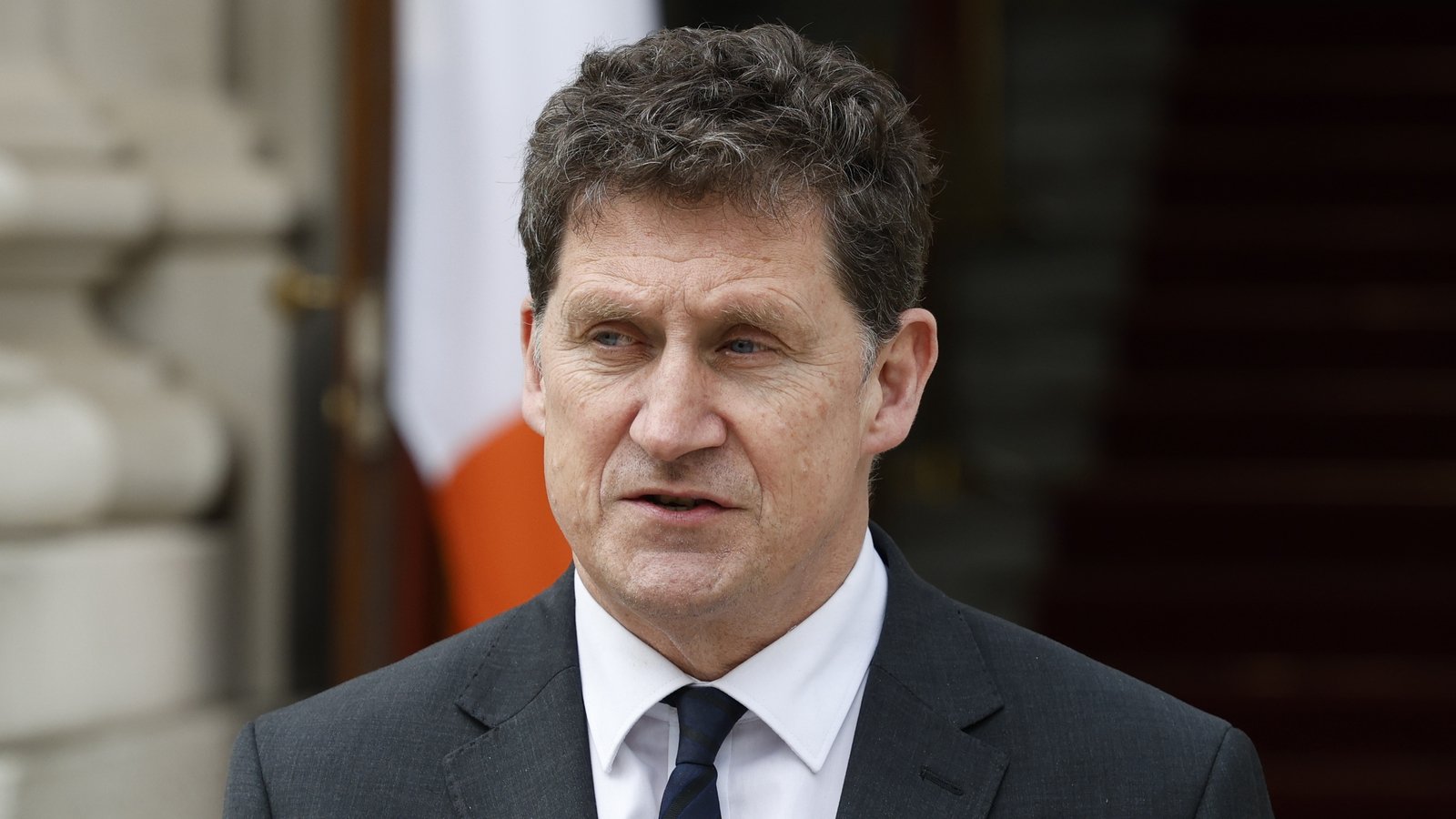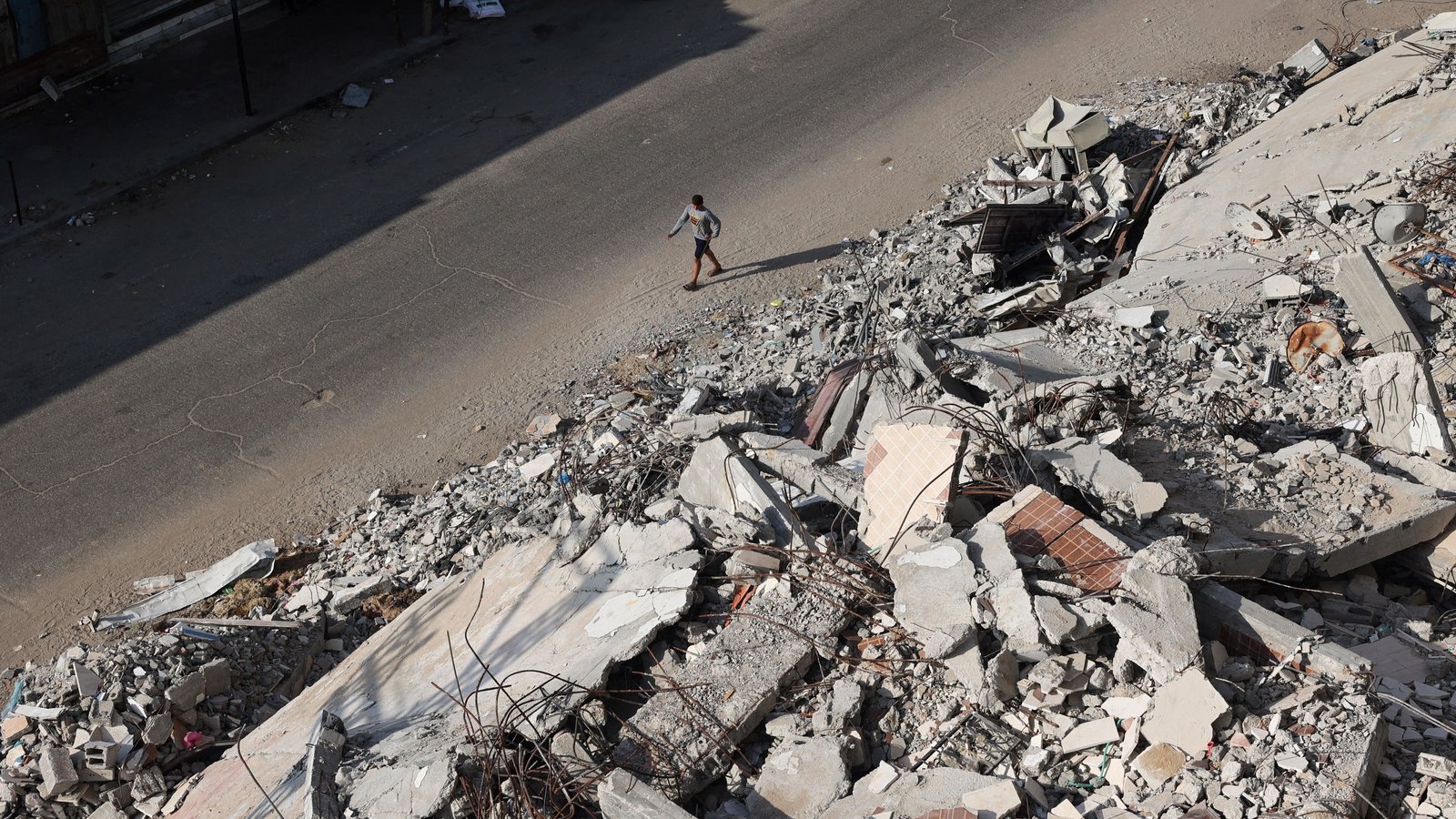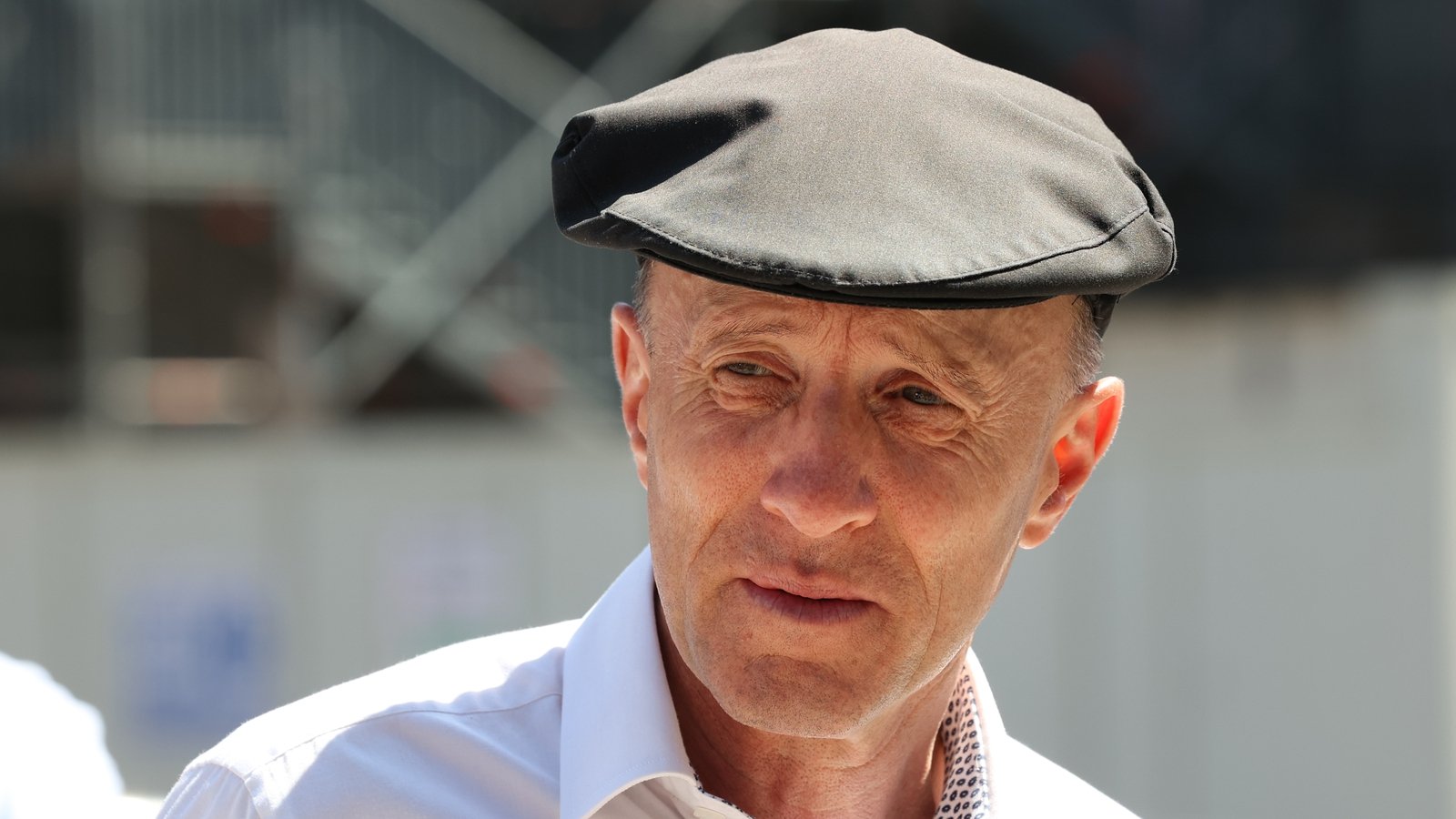Western support for Ukraine crucial in 2024
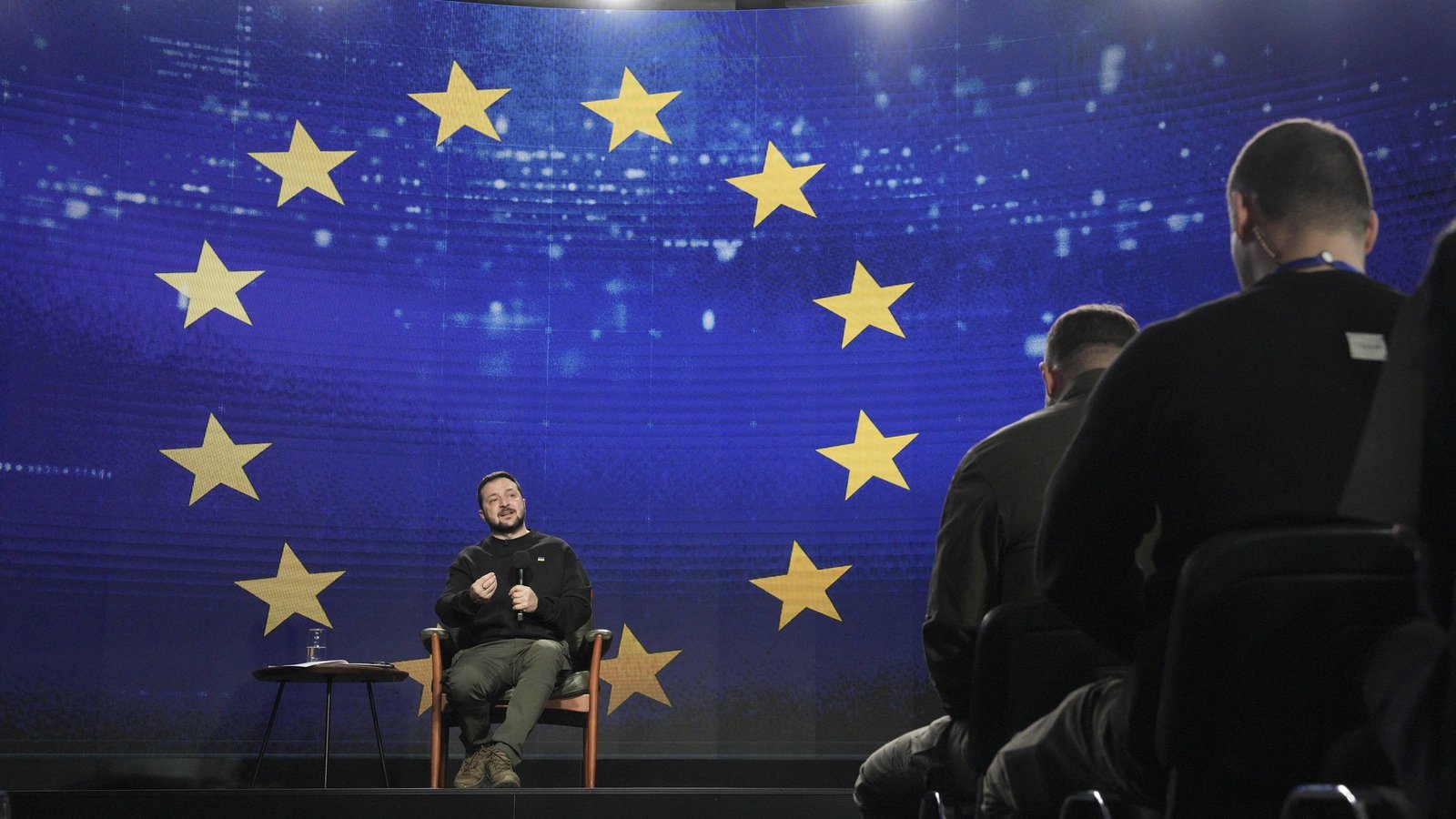
Almost two years after Russia’s full-scale invasion, Ukraine continues to fight a war on an enormous scale along a 1,000km front, while, at the same time, is running a $43bn (€39bn) budget deficit as 2024 approaches.
Though Ukraine’s real GDP grew by 4.5% this year, the departure of more than 5 million of its citizens as refugees to European Union countries, many of whom are of working age, has left a big gap in the country’s exchequer.
Economic activity in Ukraine contracted by about 30% during the first year of the war, according to the International Monetary Fund.
On the military front, Kyiv’s long-awaited counteroffensive, launched in June, has petered out without a breakthrough.
Little ground was regained by Ukrainian forces during the six-month counteroffensive, in which they are likely to have sustained heavy casualties.
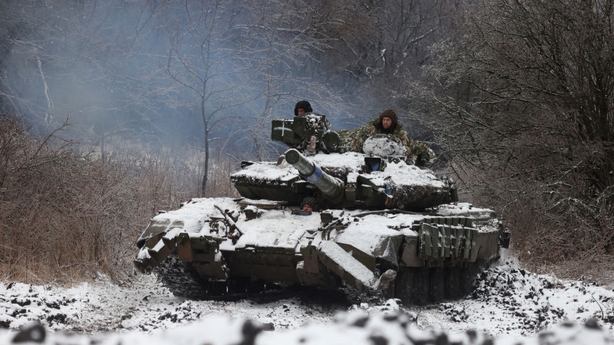
And in recent weeks, Russian President Vladimir Putin has started to sound more emboldened, indicating that Russia will not relent in its war.
All of this underlines the importance of Western economic and military support for Ukraine in 2024, not only to push Russian forces back from occupied regions, but to maintain financial stability in the country.
Ukrainians received a morale boost from December’s EU Council summit when 26 EU leaders decided to start formal EU accession talks with Ukraine.
Hungarian Prime Minister Viktor Orban’s decision to leave the meeting room, so that the Council’s vote could take place without him, dampened what was otherwise an historic chapter in Ukraine’s journey towards EU membership.
Mr Orban’s comments to Hungarian media after the vote offered a harbinger of continued Hungarian opposition once formal accession talks begin with Kyiv next year.
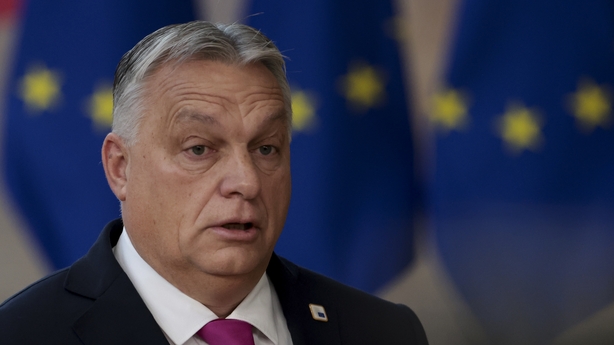
‘Historical chance’ for Ukraine
The Hungarian prime minister had argued that Ukraine is not yet in a position to meet the criteria to join the EU.
Still, the decision by all but one of the EU’s leaders to open the door to membership for Ukraine is a “historical chance”, Dmytro Naumenko, a Kyiv-based political analyst, told RTÉ News.
EU membership for Ukraine, he said, was “the pure essence of this war”, and offers the only option for Ukraine “to survive as a country and as a member of a united Europe”.
That sense of survival is felt by Ukrainians of all walks of life.
Speaking from his top floor apartment in Kyiv, Mr Naumenko said that he and his family now have access to a “good shelter”. Last year, there was no bomb shelter close to their home.
But Kyiv’s residents have faced a new threat from Russia in recent weeks: the S-400 missile.
“They are very fast, hypersonic, and we get only two minutes to react, which makes it impossible to find somewhere,” said Mr Naumenko, a senior analyst at UCEP, a thinktank in Kyiv.
“We believe in our good luck,” he added.
The EU Council’s decision to start talks on membership from next year, driven in large part by geopolitical and security considerations, is a game changer for Ukrainian society, ten years after protestors at Kyiv’s Maidan Square demanded democratic reforms and to break away from Russian influence.
Though the Ukraine-EU association agreement, first signed in 2008, established closer economic and political cooperation between the bloc and Kyiv, it did not offer a clear route to membership.
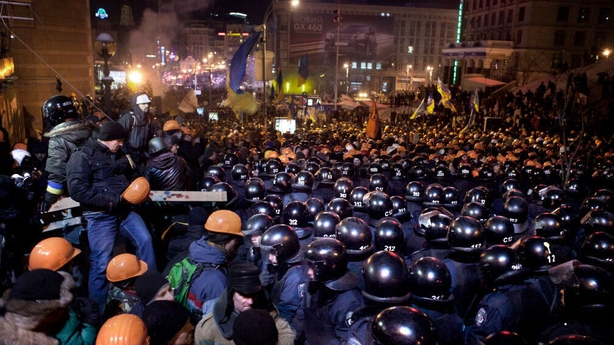
It meant that Ukraine’s political elite often fell short of introducing key legislation to tackle corruption and overhaul the judicial system.
Mr Naumenko said there was “no carrot” with the association agreement.
This month’s decision in Brussels now offers Ukraine that clear route towards EU membership, providing Kyiv with added political motivation to enact sweeping changes from early 2024 in order to meet the remaining recommendations made by the European Commission.
Those include tackling corruption and introducing legislation to guarantee the rights of minorities.
Incorporating Ukraine’s large agricultural sector into the EU’s common agricultural policy (CAP) will be a challenge for its neighbours such as Poland, Slovakia and Hungary, which are currently net beneficiaries of CAP funds.
Farmers’ unions in eastern EU countries spent months this year protesting imports of cheaper Ukrainian grain.
Marcin Zaborowski, policy director at thinktank Globesec, said that he believed Ukrainian membership of the EU would strengthen European food security in the long run.
The Kremlin’s war has emboldened Ukrainian support for EU membership too.
According to a poll last May by Kyiv’s International Institute of Sociology, 92% of respondents in the country said they supported joining the EU by 2030, a jump from 67% just months prior to Russia’s invasion.
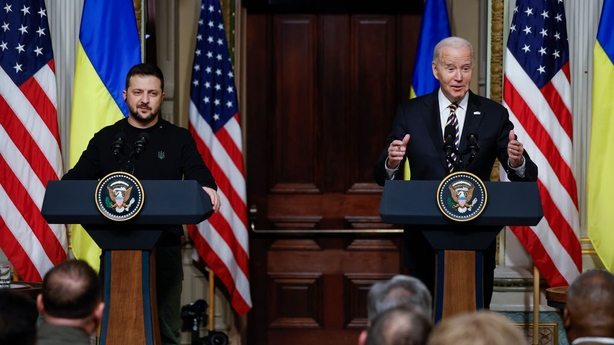
Aid package uncertainty
Political support for Ukraine in the EU remains steadfast as 2024 approaches, with the exception of Hungary.
The UK too remains a committed supplier of military equipment and training.
Since the war began, it has donated €6.6bn in military aid to Kyiv, the third largest after the US and Germany.
However, uncertainty hangs over two important aid packages for Kyiv at the start of next year.
The first, a $61bn (€55bn) US aid package, was blocked by Republicans in the US Senate in December, some of which was earmarked for military funding.
The prospect of a return by Donald Trump to the Oval Office in late 2024 also does not bode well for Ukraine’s war effort.
His comments in recent weeks about bringing the war to an end within one day were vague, if not bordering on quixotic.
Since the start of the war, the US has committed more than $100bn (€91bn) in military and economic aid for Ukraine, but that scale of financing looks unlikely to continue in 2024.
Recently, House Speaker Mike Johnson, a Republican, said the current Democrat administration in the White House had “no clear strategy to win” in Ukraine.
The $61bn package is now hostage to demands that Republicans in both the Senate and House of Representatives want enacted in order to strengthen US immigration laws on the border with Mexico.
Even a visit to Washington last week by Ukrainian President Volodymyr Zelensky failed to win over Republican politicians.
In Brussels, a €50bn EU economic aid package was vetoed by Mr Orban at the EU Council meeting.
Taoiseach Leo Varadkar described the impasse as “disappointing”, and another meeting of EU leaders could be held in the new year in a bid to bring Hungary on-board.
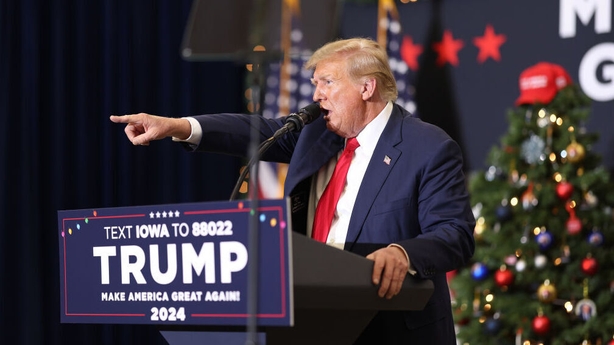
US election to shape Ukraine funding
While Ukraine has used its own revenues to pay for its war effort over the past two years, most foreign financial aid goes towards paying the country’s pensions, public sector salaries and keeps public services running.
A study earlier this month from Germany’s Kiel Institute found that the value of new commitments from August to October had fallen by 87%, compared with the same period last year.
“Germany, Norway, Sweden and Denmark are particularly active donors, and specifically when it comes to military assistance,” Pietro Bomprezzi, who coordinates the institute’s Ukraine Support Tracker, told RTÉ News.
Friction in the US Congress, he said, accounted for military aid for Ukraine being pushed back.
In contrast, the Kremlin has said it will spend almost 30% of the Russian budget next year on defence, an indication of its appetite to continue the war at its current intensity.
At a press conference on 19 December, Mr Zelensky told reporters that he did not know how long the war would last. That kind of statement will not inspire Republican politicians in the US.
Ukrainian officials will be closely observing next year’s US presidential campaign ahead of November’s vote.
It will decide the shape of future American funding for Ukraine and, possibly, the direction of the war itself.
It would be difficult to see another US administration led by Mr Trump acting in an entirely helpful role towards Kyiv.
Within EU circles, the prospect of financing Ukraine next year is still something most governments appear willing to stomach.
Mr Zelensky has also indicated that he would like to hold talks with Mr Orban to find a solution to Hungary’s opposition to the EU aid package.
“Our historic place is in Europe. And now there is a window of possibility to fulfil it.”
Donald Tusk, Poland’s new centrist prime minister, speaking to the Polish parliament on 12 December, said that his new government would demand “the full determination” of the West to help Ukraine’s war effort.
In the final months of the previous Polish government, relations between Warsaw and Kyiv had soured due to a dispute over cheaper Ukrainian grain imports, which culminated in former Polish prime minister Mateusz Morawiecki saying that Poland would no longer send new supplies of weapons to Ukraine.
The new government in Warsaw will provide another leading voice within the EU for continuing financial support for Ukraine in 2024.
“Tusk comes with the credibility of leading a coalition of democratic forces which have won against populists,” said Mr Zaborowski.
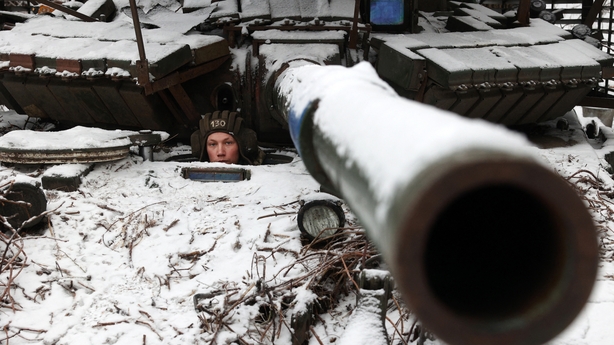
Czech Republic President Petr Pavel, a former NATO commander, will also continue to provide another hawkish voice in Central Europe towards Russia, offering an antidote to the Hungarian government’s vague plans for brokering a peace deal.
In an interview this month with Czech online news service Seznam Zpravy, Mr Pavel warned that the tide of the war could turn in Russia’s favour next year.
Financial aid aside, the most symbolic act of support for Ukraine next year could well be the start of formal accession talks with the EU.
For many Ukrainians, those early talks will act as a recognition of their country’s ongoing efforts, forged on the battlefields of Avdiivka, Kupyansk, Stepove and countless other small towns and villages, to become an integral part of Europe.
“Our historic place is in Europe. And now there is a window of possibility to fulfil it,” said Mr Naumenko.

